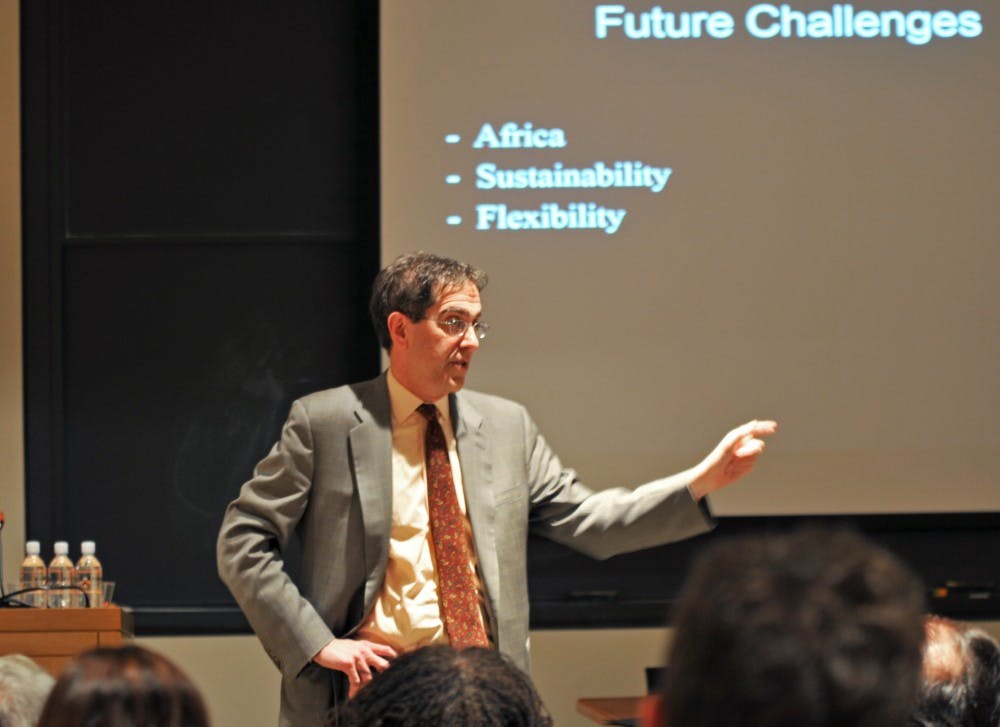With existing partnerships in Asia—specifically, China — established, expansion of programs in Africaposes the next challenge for the University, Council for International Teaching and Research Director and history professor Jeremy Adelman said at the Council of the Princeton University Community meeting on Monday evening.
There is a lot of demand among faculty and students to create partnerships in Africa, according to Adelman, but "the approach for partnership can’t be the same [as in Asia] because the institutional infrastructure and resource distribution isn’t there [in Africa] in the same way as for other parts of the world.”
Beyond expansion of programs in Africa, another challenge facing the University’s international initiatives will be to sustain the council’s existing programs abroad. Adelman noted that council funding for the programs would eventually fade away.
“We want to find strategies that will allow departments and centers of programs to absorb, to adopt those programs. We helped them get it started, but it will be up to the units to carry them forth,” Adelman said.
On his recent trip to Asia, University President Christopher Eisgruber ’83 met with alumni and reached out to Asian institutions about the University’s existing and potential partnerships in the region.
“It’s clear to me that this is an area that we do and should have a high level of interest in as a university,” Eisgruber said. He visited four major metropolitan areas: Tokyo, Seoul, Beijing and Hong Kong.
“Our hope is that we can deepen the channels that allow the activity to occur and reduce friction,” Eisgruber explained, noting that Princeton in Beijing, the University’s intensive summer Mandarin Chinese language program, had had a transformative impact on alumni he spoke to.

“There is a high demand running in two directions,” Eisgruber said, explaining that there are both faculty and students at Princeton who want to travel to Asia as well as researchers in other regions who want to come to Princeton. Meeting the demand in both directions will require creative and flexible initiatives, Eisgruber said.
“China presents challenges because there is no single institution we should partner with,” Adelman said. To confront this challenge, the University has established a partnership with Tsinghua University, which will serve as the inter-university center supporting relationships with multiple institutions. In addition, Princeton is deepening its relationship with Beijing Normal University.
“Right now in Beijing Normal, we are planning an expansion of the Princeton in Beijing program,” Eisgruber said.
Pilot projects created by the University currently have researchers working on air pollution monitoring in China and Chinese public memory. The Department of East Asian Studies has proposed to expand the program to allow Princeton faculty to teach in other disciplines at Beijing Normal, Eisgruber added.

Princeton’s partnership with the University of Tokyo was one of the easiest partnerships to create because it is "a hegemonic institution", Adelman noted.
“It stands a head above its peer institutions,” Adelman said. Current programs in Japan will allow Princeton researchers to study Japanese politics and electrical engineering.
Last year, the University established a strategic partnership with the University of Sao Paulo and a research partnership with the University of Geneva. This week, the council is receiving its first round of applications from those proposing collaborative research and teaching ventures between the institutions, Adelman said.








